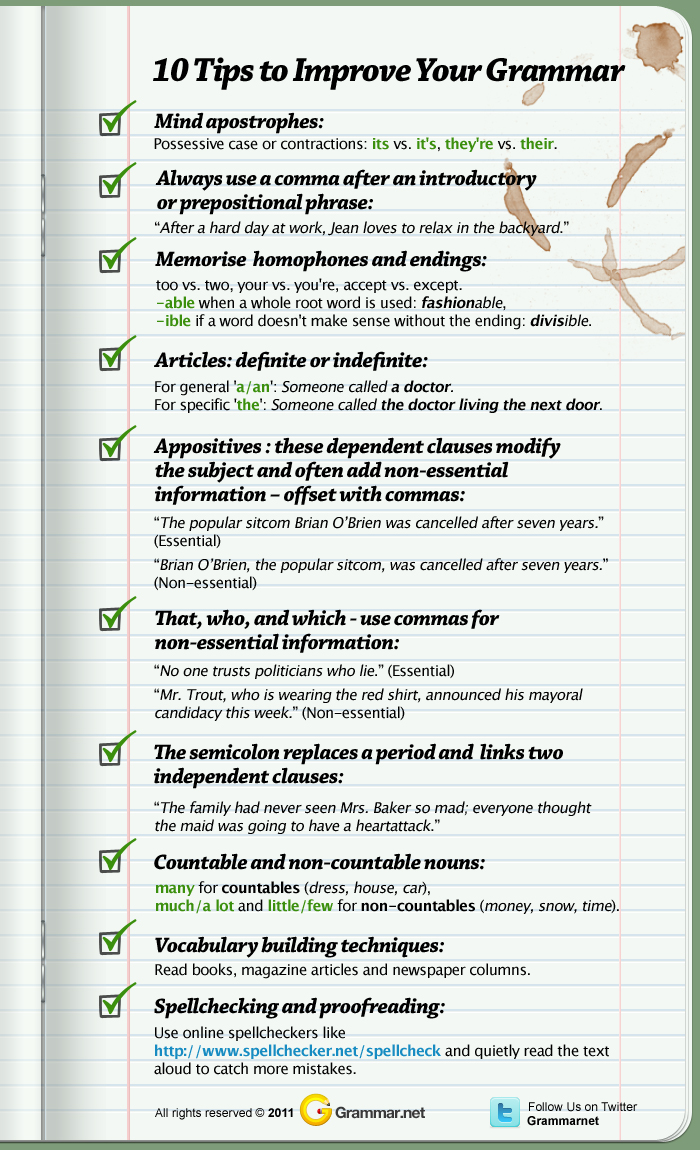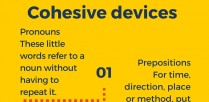Before I was writing about the importance of correct grammar in cards, letters, and so on. Unfortunately, I find more grammar and vocabulary mistakes everywhere on the Internet. The essential goal of the correct writing and speech is to exchange the information with other speakers.
Today I’ve read a quotation about the similar situation by Matt Groening: “I know all those words, but that sentence makes no sense to me.”
Accents should be at the second place after the correct language, I’m sure.
Even if you sound very unfamiliar to your listener, you’ll be able to express yourself in writing.
Once I was explaining to my student what murmur (low sound, voice) is. She was not concentrated and got confused as the same word can have the medical (heart murmur) meaning.
Both of us were using the correct grammar and spelling, though due to this misunderstanding we had to write down one and the same word.
I hope that you can see now few more reasons to improve your English language. Just try to look through this short and concise list! It will easily help you to recall the old rules you might have forgotten, and to learn the new ones.
You can improve your grammar, and spelling right today!

You can buy this infographic here.
Let’s read the explanation below:
1. Apostrophes.
Apostrophes show the reader when a word is a possessive or a conjunction.
For example, “it’s” and “its,” “theirs” and “there’s,” “you’re” and your” and other.
2. Prepositional phrases and introductory clauses.
Always use a comma after an introductory or prepositional phrase. For example, “After a hard day at work, Jean loves to relax in the backyard.”
3. Homophones and endings.
Sometimes there are too many variations to know whether it’s “to,” “too” or “two,” “were” or “we’re” and “-ible,” or “-able.” Most homophones you use need to be memorized.
Other words like those ending with “-ible” and “-able” are a little easier to remember. If the root word is whole, add “-able” like fashionable, untranslatable. If the word doesn’t make sense without the ending, add “-ible” like divisible, invisible.
4. Definite and indefinite articles.
Articles, such as “a,” “an” and “the,” tell us whether something is general or specific, indefinite or definite.
For example, “Someone called a doctor.” “Someone called the doctor living the next door.”
5. Appositives.
These dependent clauses modify the subject and often include non-essential information – offset with commas. For example, “Mr. Walker, an international economist, is arriving this morning.” (Non-essential) “An international economist Mr. Walker is arriving this morning.” (Essential)
“The popular sitcom Brian O’Brien was cancelled after seven years.” (Essential) “Brian O’Brien, the popular sitcom, was cancelled after seven years.” (Non-essential)
6. That, who, and which.
Comma rules vary for relative pronouns that tell readers specifics about people and things.
For example, “No one trusts politicians who lie.” (Essential) or “Mr. Trout, who is wearing the red shirt, announced his mayoral candidacy this week.” (Non-essential)
7. The semicolon.
This powerful punctuation mark can replace a period and effectively link two independent clauses.
For example, “The family had never seen Mrs. Baker so mad; everyone thought the maid was going to have a heart attack.”
8. Countable and non-countable nouns.
Like collective nouns, non-countable nouns are inherently plural. When used with adjectives, non-countable nouns are prone to confusion.
For example, “many” works with countable nouns that are pluralized with “-s” or “-es” endings. For non-countable nouns, including money, time and snow, “much” or “a lot” are used. Other adjectives like little and few are only used with uncountable nouns.
9. Vocabulary building.
The secret to powerful writing is a strong vocabulary. Reading books, magazine articles, and newspaper columns is one of the easiest ways to learn vocabulary and see examples of correct grammar and effective punctuation.
10. Proofreading and spellchecking.
Last but not least, proofreading is the final step to grammatical perfection. Waiting to proofread often produces the best results. However, quietly reading aloud is another great way to catch more mistakes.
Building vocabulary and picking up tips to improve writing skills is an ongoing and rewarding process that has the power to open doors.






